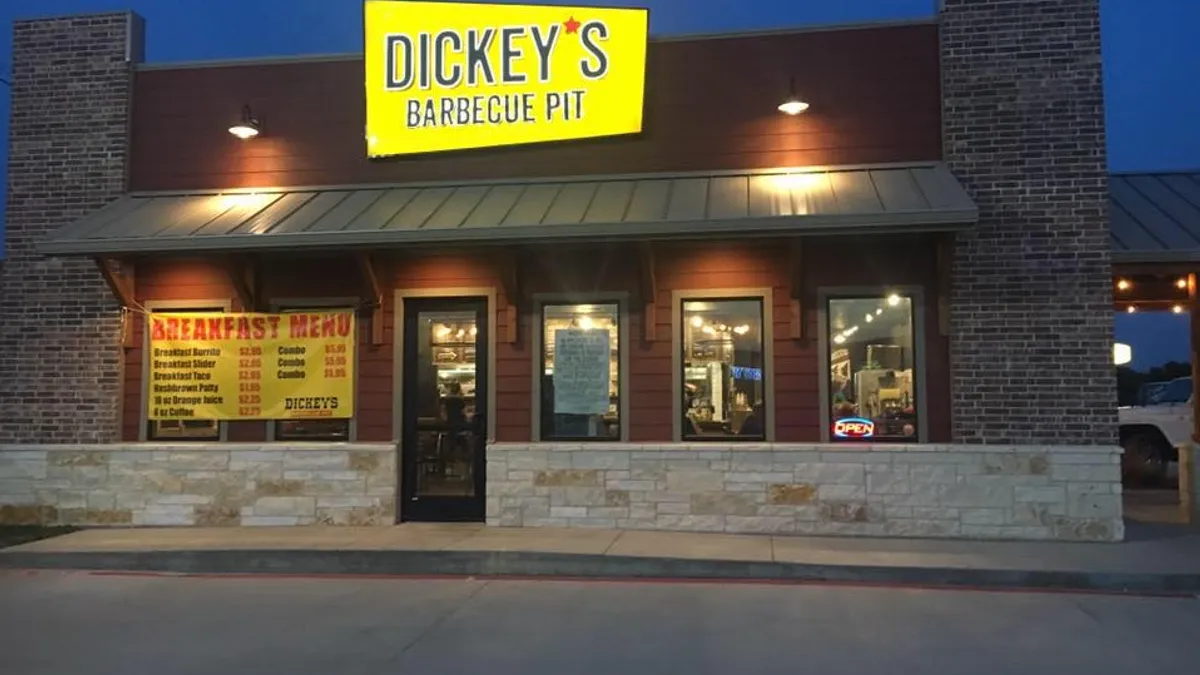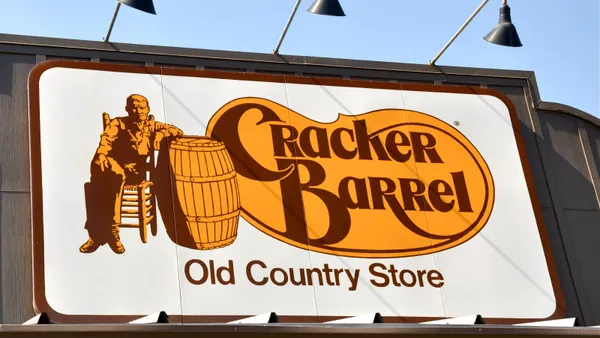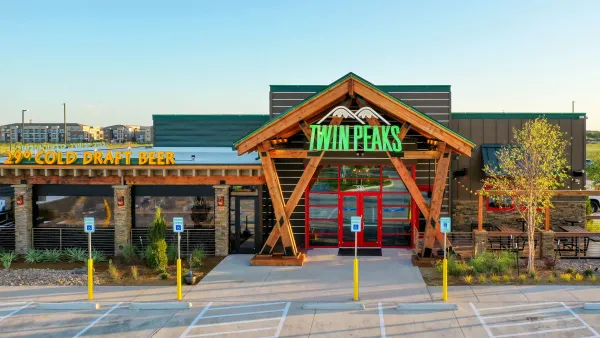Dive Brief:
- A group of Dickey’s Barbecue franchisees are suing the brand and a lender, Luminate Bank, alleging that the chain used false financial figures to persuade them to sign on as franchisees, according to a press release published earlier this week.
- The plaintiffs allege that Dickey’s told them opening a store would require up to $323,789 in initial investment. The suit states that opening costs were typically between $800,000 and $1 million. Dickey’s current franchise disclosure document estimates the initial cost of opening one of its traditional restaurants is $437,605 - $528,589.
- Dickey’s has struggled recently with low unit volumes and store closures. According to its FDD, the chain has lost 83 net units in fiscal 2024 while the chain has transferred 106 units between owners.
Dive Insight:
According to the lawsuit, Dickey’s provided plaintiffs Daniel Unsworth — an Ohio franchisee — and Jeremy and Nicole Kolbach — operators from Idaho — with virtually identical estimates of the cost of opening and running their stores, despite substantial differences between the cost of real estate, labor and other factors between the two states.
Jeff Gruber, Dickey’s senior vice president of franchise relations, said the company feels all the claims made in the complaint are without merit. Gruber called the suit, which was first filed in June, and the press release issued earlier this week, a publicity stunt.
When the plaintiffs sought to join Dickey’s as franchisees in early 2022, the brand estimated that it would take franchisees about four years and three months to break even on their initial investments.
“It is impossible that this number could be the same for both locations and there was absolutely no basis or justification for providing this grossly inflated number that was based on intentionally understated costs and overstated revenues,” the complaint states of the payback period estimate.
The plaintiffs allege that Luminate did not meaningfully scrutinize pro forma profit and loss statements or projects when deciding to lend to Dickey’s franchisees, but that the bank knew of loan defaults by other Dickey’s franchisees.
Dickey’s told the plaintiffs that total revenue per store would be around $900,000 in the first year, according to the complaint and supporting exhibits. Unsworth claimed that his restaurant never came near the level of daily sales needed to hit that level of yearly revenue, including on its grand opening.
“None of these other franchises generated revenues that would be remotely consistent with the verbal representations made to Unsworth or with the written pro forma profit and loss statement provided to [plaintiffs],” the complaint states.
Gruber said the chain believes the case will be decided by arbitration, rather than a court battle.
“The plaintiff is presumably very aware that there is an arbitration clause in our franchise agreement that binds the party to arbitration,” Gruber said.
The plaintiffs and their attorney did not immediately respond to a request for comment.
Dickey’s recently said it was pausing the expansion of its non-barbecue virtual brands and adding Southern-inspired chicken sandwiches to its menu as it focuses on its core barbecue offerings. Last month, a Michigan operator of the brand filed for Chapter 11 bankruptcy, claiming the chain’s policies were extreme and unreasonable.












